Podcast Topic: Food Insecurity
The Leading Voices in Food
Podcast Topic: Food Insecurity
 E263: Explore the Daily Table non profit grocery store model
E263: Explore the Daily Table non profit grocery store model
February 5, 2025
Today, we’re going to explore Daily Table, an innovative non profit grocery chain dedicated to providing fresh, convenient, and nutritious food affordable to everyone, even those on the Supplemental Nutrition Assistance Program, or SNAP. In today’s economic climate, where rising food prices are impacting households across the country, the concept of a non profit grocery store seems to fill a real need. Our guest today is Daily Table CEO, Sasha Purpura, a software engineer who spent 15 years in the tech industry and product management and development roles.
Related podcasts: Advocacy & Food | Community & Economic Development | Economics of the food system | Equity, Race & Food Justice | Food Banks, Food Pantries & Soup Kitchens | Food Insecurity | Philanthropy & Food Systems |
 E262: Impact of skimming and shimming fraud on SNAP recipients
E262: Impact of skimming and shimming fraud on SNAP recipients
January 30, 2025
On our podcast, we have often talked about the Supplemental Nutrition Assistance Program, or SNAP. In many of those conversations, we’ve talked about the benefits and eligibility, and ways to improve the work that SNAP does to help low-income families meet their food needs. In today’s podcast, we’re going to turn our attention to a particular challenge, and it’s the SNAP skimming fraud. To help us understand this and the larger context of SNAP, we have the great pleasure of talking with Salaam Bhatti, who is the director of SNAP at the Food Research and Action Center, or FRAC.
Related podcasts: Advocacy & Food | Food Insecurity | Food Policy |
 E260: Food Recovery Network Urges Food Date Labeling Reform
E260: Food Recovery Network Urges Food Date Labeling Reform
January 14, 2025
I don’t know about you and your household, but in my home, we have a long history of opening the refrigerator and discovering pasta sauce or mayonnaise that we don’t remember when it was put in the refrigerator, when we last opened it, and we’re confused. We open the container; we smell it; we check out the date label. And if we’re confused, we have a mantra: when in doubt, throw it out. But aren’t those date labels supposed to help us make good decisions about whether or not a food product is safe? Currently, there is no federal regulation on what those labels should say. Best Buy, Use Buy, Sell Buy, or what have you. However, there is legislation in the Congress called the Food Date Labeling Act to help us address this issue. And today’s guest, Regina Harmon, will help us explore this particular issue. She is the executive director of the Food Recovery Network, the largest student led movement fighting food waste and hunger in the United States.
Related podcasts: Climate Change, Environment & Food | Food Banks, Food Pantries & Soup Kitchens | Food Insecurity | Food Waste & Implications |
 E248: Climate-smart strategies for small-scale fishing communities
E248: Climate-smart strategies for small-scale fishing communities
September 26, 2024
Join host Norbert Wilson and co-host Kerilyn Schewel in the latest episode of the Leading Voices in Food podcast as they dive deep into the world of small-scale fisheries with two distinguished guests: Nicole Franz from the Food and Agriculture Organization of the United Nations (FAO) and John Virdin from Duke University’s Nicholas Institute for Energy, Environment, and Sustainability. Discover the significant role small-scale fisheries play in food security, economic development, and community livelihoods. Learn about the unique challenges these fisheries face, and how community-led climate adaptation alongside top-down national policies can help build resilience. This episode also highlights collaborative efforts between academia and organizations like FAO, painting a comprehensive picture of the state and future of small-scale fisheries.
Related podcasts: Agriculture & Tech | Climate Change, Environment & Food | Community & Economic Development | Fisheries & Food Policy | Food Insecurity | Food Policy | International Food & Ag Policy |
 E239: National report – where the grocery stores are missing
E239: National report – where the grocery stores are missing
July 16, 2024
Today we’re talking about who has access to full-service supermarkets in America’s cities, suburbs, small towns and rural communities. According to The Reinvestment Fund’s “2023 Limited Supermarket Access Analysis Report,” 8.5% of people in the US live in areas with limited access to full-service supermarkets. This means that families must travel further to get fresh foods, and it creates a barrier to adequate nutrition. This is the 10th year The Reinvestment Fund has published the “Supermarket Access Report,” which provides data and context about grocery store access across the country. Here to discuss the latest figures is policy and analyst Michael Norton.
Related podcasts: Community & Economic Development | Equity, Race & Food Justice | Food Insecurity | Philanthropy & Food Systems |
 E233: Grocery and meal insight from the Baby’s First Years project
E233: Grocery and meal insight from the Baby’s First Years project
March 28, 2024
A growing number of research studies show that the cognitive and brain development of low-income children differs from that of children in higher income families. For any family, that is a concerning statement. Today’s podcast features a project called Baby’s First Years, a multi-year effort to test the connections between poverty reduction and brain development among very young children. Here to talk about what the study has revealed so far is Dr. Lisa Gennetian from Duke University’s Sanford School of Public Policy, and Dr. Sarah Halpern-Meekin from the La Follette School of Public Affairs at the University of Wisconsin, Madison.
Related podcasts: Child Development & Nutrition | Diet & Nutrition | Food Insecurity | Social Safety Net & Food |
 E232: Carolina Farm Trust creating healthy food system disruption
E232: Carolina Farm Trust creating healthy food system disruption
March 18, 2024
Today’s podcast is a story of one man’s personal journey to making a difference by building communities. Zach Wyatt grew up caretaking an old 300-acre farm in Virginia. He went to college and ended up working in mortgage lending. And then something changed for Zack, and that’s where the story gets interesting. He now leads the Carolina Farm Trust, working to strengthen local food systems in the Carolinas. The trust cultivates urban farm networks, farm apprenticeships, supports local farmers in purchasing equipment or land, making informed-decisions, and more.
Related podcasts: Agriculture & Tech | Community & Economic Development | Food Insecurity | North Carolina | Philanthropy & Food Systems | Urban Agriculture |
 E230: Results from a national consumer attitudes survey on dollar stores
E230: Results from a national consumer attitudes survey on dollar stores
February 22, 2024
Dollar stores are the fastest growing food retailer in the United States, both by sheer number of stores and consumer food purchases. Just two corporations, Dollar General and Dollar Tree, which also owns Family Dollar, operate more than 35,000 stores across the country. However, a growing body of research reveals that dollar stores offer limited healthy food options. Dollar stores shape the food environments of communities, especially in the South and Midwest regions and communities in rural areas with substantial shares of Black and Latin people and households with limited financial resources. What do we know about the impact dollar stores have on these communities and the overall wellbeing of community members? The Center for Science in the Public Interest conducted a national survey to understand how people perceive and actually use dollar stores. Today we will talk with lead author of this study, Senior Policy Scientist Sara John.
Related podcasts: Diet & Nutrition | Food Industry Behavior & Marketing | Food Insecurity |
 E225: Efficient Food Recovery and Waste Prevention – a Business Strategy
E225: Efficient Food Recovery and Waste Prevention – a Business Strategy
January 17, 2024
Our guest today is Jasmine Crowe-Houston, social entrepreneur, and founder of Goodr.co. Jasmine started her journey cooking soul food for hungry unhoused people in her kitchen in her one-bedroom apartment in Atlanta. She fed upwards of 500 people a week for years with pop-up kitchens and parks and parking lots. Then in 2017, she founded Goodr, a technology-based food waste management company that connects firms with food surpluses to nonprofit organizations that can use the food. She has worked with organizations that have food waste issues, such as the Atlanta International Airport, Hormel Foods, and Turner Broadcasting. Today, Goodr has expanded nationwide and sponsors free grocery stores and schools. She has combined charity, innovation, and market-based solutions into a for-profit waste management company that Inc. Magazine called a rare triple win.
Related podcasts: Climate Change, Environment & Food | Equity, Race & Food Justice | Food Banks, Food Pantries & Soup Kitchens | Food Insecurity | Food Safety & Food Defense | Food Waste & Implications |
 E224: Mississippi Delta History Describe Food Power Against and For Blacks in US
E224: Mississippi Delta History Describe Food Power Against and For Blacks in US
January 16, 2024
Stories from the past help us understand who we are and who we can be. In today’s podcast, we will explore a gripping new book titled “Food Power Politics: The Food Story of the Mississippi Civil Rights Movement,” written by African American Studies Assistant Professor Bobby J. Smith II at the University of Illinois at Urbana-Champaign. The book tells how food was used as a political weapon against African Americans and describes how black people fought against oppressive regimes by creating their own food systems, Bobby sets the stage for understanding how black youth today in Mississippi and beyond are building food justice movements and grappling with inequalities that attempt to contort their lives.
Related podcasts: Equity, Race & Food Justice | Food Insecurity | Food System Narratives | History & Food |

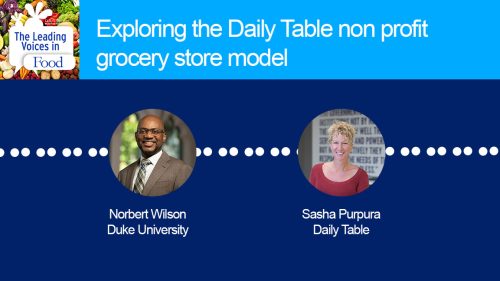 E263: Explore the Daily Table non profit grocery store model
E263: Explore the Daily Table non profit grocery store model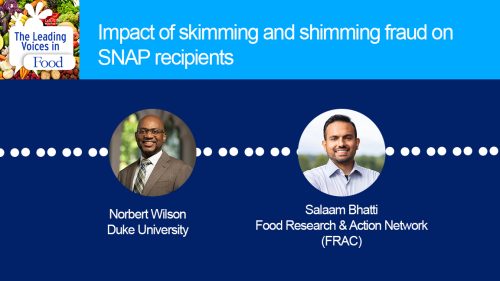 E262: Impact of skimming and shimming fraud on SNAP recipients
E262: Impact of skimming and shimming fraud on SNAP recipients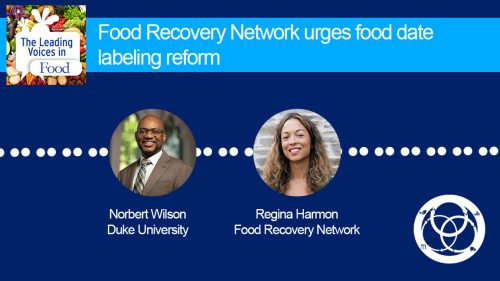 E260: Food Recovery Network Urges Food Date Labeling Reform
E260: Food Recovery Network Urges Food Date Labeling Reform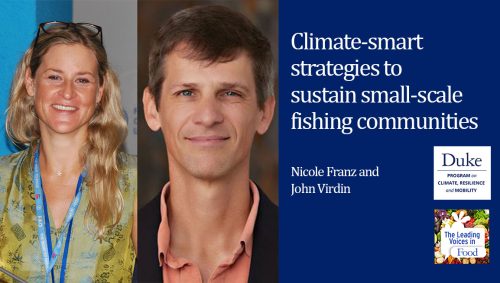 E248: Climate-smart strategies for small-scale fishing communities
E248: Climate-smart strategies for small-scale fishing communities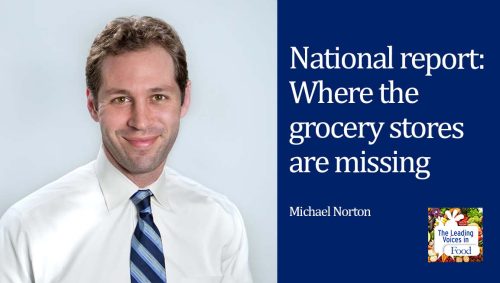 E239: National report – where the grocery stores are missing
E239: National report – where the grocery stores are missing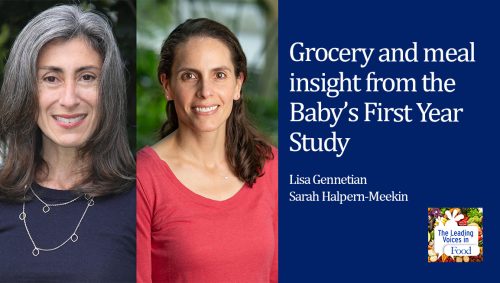 E233: Grocery and meal insight from the Baby’s First Years project
E233: Grocery and meal insight from the Baby’s First Years project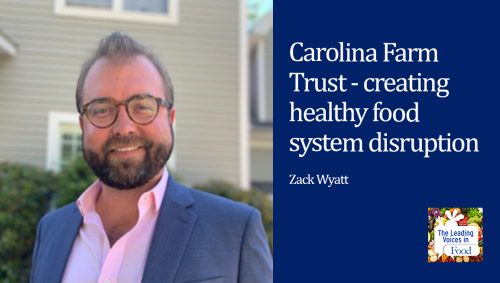 E232: Carolina Farm Trust creating healthy food system disruption
E232: Carolina Farm Trust creating healthy food system disruption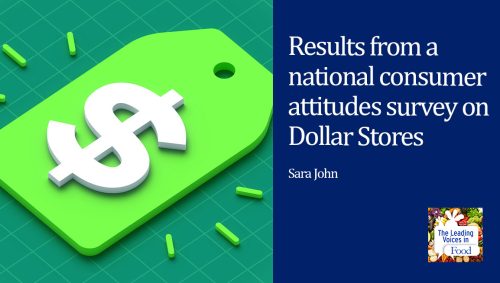 E230: Results from a national consumer attitudes survey on dollar stores
E230: Results from a national consumer attitudes survey on dollar stores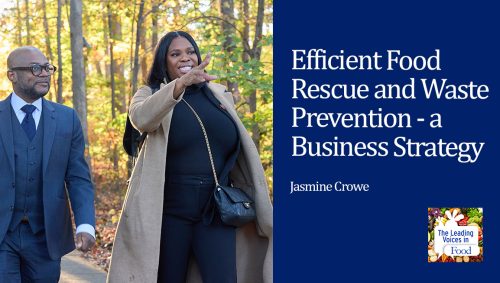 E225: Efficient Food Recovery and Waste Prevention – a Business Strategy
E225: Efficient Food Recovery and Waste Prevention – a Business Strategy E224: Mississippi Delta History Describe Food Power Against and For Blacks in US
E224: Mississippi Delta History Describe Food Power Against and For Blacks in US